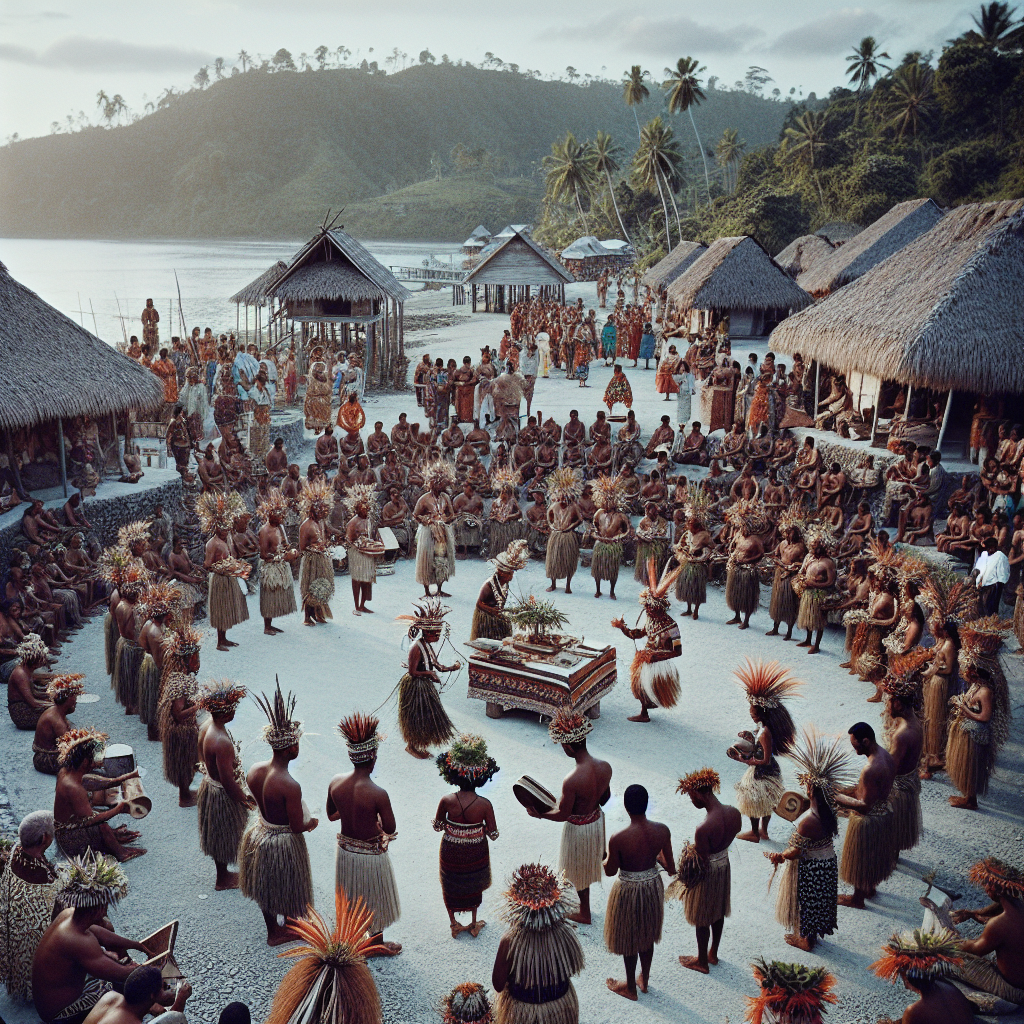Introduction to Fiji Culture and Traditions
In my experience researching Fiji culture and traditions, I’ve been captivated by the richness and vibrancy that define these islands. I want to share what I’ve learned about how deeply rooted and vibrant Fiji culture and traditions truly are, shaping daily life and community bonds. When I first visited Fiji, I immediately sensed that understanding their customs and heritage was essential to truly experiencing the essence of the islands. I’ve found that embracing the Fiji culture and traditions opens a window into their soul, revealing stories of resilience, unity, and spirituality.
From what I’ve learned, the Fiji culture and traditions are not just relics of the past but living practices that continue to thrive today. I recommend anyone interested in Fijian society to delve into their customs, because it’s through these traditions that I’ve gained a deeper appreciation of their values and way of life. I believe that exploring Fiji’s cultural heritage is essential for a meaningful experience, whether you’re visiting or simply studying their vibrant society.
Understanding Fiji Culture and Traditions Through Its Customs
Traditional Fijian Ceremonies and Their Meaning
In my research, I’ve discovered that traditional Fijian ceremonies are at the heart of Fiji culture and traditions. One of the most iconic is the *kava* ceremony, which I’ve seen performed numerous times and found profoundly meaningful. The act of sharing kava brings people together, symbolizing respect, unity, and community. From my experience, participating in or observing a kava ceremony offers invaluable insights into the significance of communal bonds in Fiji.
From what I’ve learned, these ceremonies also serve as a way to honor elders and celebrate important events. I recommend immersing yourself in these customs if you want to truly grasp the essence of Fiji culture and traditions. The reverence shown during these rituals encapsulates the deep spirituality and respect that underpin Fijian society. I believe that engaging with these ceremonies provides a genuine connection to the islanders’ way of life.
Fiji Culture and Traditions in Fijian Art and Craft
My exploration of Fiji culture and traditions wouldn’t be complete without mentioning their vibrant arts and crafts. I’ve found that woven mats, bark cloth (called *masi*), and intricate carvings are more than just beautiful objects—they are stories and symbols of Fijian identity. From what I’ve seen, each piece reflects centuries of tradition and local storytelling, making them priceless treasures.
I’ve also discovered that creating these crafts is a communal activity, often passed down through generations. I recommend purchasing authentic Fijian crafts when you visit, as they’re tangible connections to Fiji culture and traditions. It’s fascinating to see how artistry and cultural expression blend seamlessly in everyday objects, showing respect for heritage and community pride. I believe that engaging with these arts offers a profound appreciation for Fiji’s cultural richness.
The Significance of Fijian Ceremonies and Rituals
The Role of *Meke* in Preserving Fiji Culture and Traditions
In my experience, the *meke* dance is a powerful expression of Fiji culture and traditions. I’ve attended several *meke* performances, and each time I’ve been struck by their storytelling power. These traditional dances often depict historical events, legends, or social themes, and I believe they serve as a living archive of Fijian history and values.
From what I’ve learned, the *meke* is more than entertainment; it’s an act of cultural preservation. I recommend experiencing a *meke* firsthand—either through a cultural show or community gathering—because it’s a vivid illustration of how Fiji culture and traditions are kept alive today. Watching these performances, I felt a deep sense of pride and connection to the islanders’ heritage, reinforcing my belief that such rituals are vital in maintaining their cultural identity.
Traditional Fijian Rituals and Their Spiritual Significance
My research shows that Fiji culture and traditions are deeply intertwined with spirituality. Many rituals, such as * sevusevu* (the presentation of the kava ceremony), serve as sacred customs that establish trust and respect. I’ve found that these rituals are not only social but also spiritual acts that connect individuals to their ancestors and divine forces.
From my perspective, participating in or observing these rituals offers a glimpse into the spiritual fabric of Fiji society. I recommend approaching these customs with respect and openness, as they embody the core values of Fiji culture and traditions. In my experience, understanding and honoring these spiritual practices enhances your appreciation of the depth and resilience of Fijian heritage.
Fiji Culture and Traditions in Daily Life
Family and Community in Fiji Culture and Traditions
In my experience, Fiji culture and traditions place a strong emphasis on family and community bonds. I’ve seen how extended families often live together, sharing resources and responsibilities, which fosters a sense of collective well-being. These customs create a supportive environment that sustains Fiji’s social fabric.
From what I’ve learned, respecting elders and participating in community events are essential aspects of Fiji culture and traditions. I recommend engaging with local families or participating in community gatherings if you want to experience genuine Fijian hospitality. In my view, these interactions reveal how deeply rooted community values are in Fiji, making it a truly special place to connect on a personal level.
Language, Music, and Food as Expressions of Fiji Culture and Traditions
My exploration of Fiji culture and traditions also includes their language, music, and cuisine. I found that the Fijian language is a vital part of their cultural identity, often used in ceremonies and daily conversations. Music, especially the harmonious *bula* songs, is a joyful expression of community spirit.
Regarding food, I recommend trying traditional dishes like *lovo* (earth oven cooked food) and fresh seafood, which are integral to Fiji culture and traditions. These culinary practices are often shared during festivals and family gatherings, strengthening bonds and passing down customs. I believe that immersing yourself in Fijian language, music, and cuisine offers a richer understanding of their cultural identity.
Preserving and Celebrating Fiji Culture and Traditions Today
My research shows that Fiji culture and traditions are actively preserved through festivals, educational programs, and community efforts. I’ve attended the *Bula Festival*, which celebrates Fijian heritage with dance, crafts, and storytelling. It’s inspiring to see how the younger generation continues to embrace and promote their cultural practices.
From what I’ve observed, many Fijians are passionate about passing on their customs to ensure they remain vibrant. I recommend participating in local festivals or cultural workshops if you want to experience firsthand how Fiji culture and traditions are celebrated and preserved. In my opinion, these efforts are vital for maintaining the islanders’ identity amidst modern influences.
References and Resources
Throughout my research on Fiji culture and traditions, I’ve found these resources incredibly valuable. I recommend checking them out for additional insights:
Authoritative Sources on Fiji culture and traditions
-
Fiji Government Official Site
fiji.gov.fjProvides official information on Fiji’s cultural policies, ceremonies, and heritage preservation efforts.
-
Fiji Museum & Cultural Heritage
fijianmuseum.comOffers extensive collections and articles on Fijian arts, crafts, and rituals, enriching your understanding of Fiji culture and traditions.
-
UNESCO World Heritage Sites in Fiji
unesco.orgHighlights sites that are vital to Fiji’s cultural landscape, emphasizing their importance for heritage preservation.
-
Fiji Sustainability & Cultural Preservation
fijisustainability.orgFocuses on ongoing efforts to sustain Fiji’s cultural practices amidst environmental and societal changes.
-
Cultural Survival: Fiji
culturalsurvival.orgProvides stories and reports on indigenous practices and efforts to preserve Fiji’s cultural identity.
-
Tourism Fiji Official Site
tourismfiji.comOffers insights into cultural festivals, traditional experiences, and how visitors can respectfully engage with Fiji culture and traditions.
-
Fiji Experience & Cultural Tours
fijiexperience.comFeatures tours and experiences designed to immerse visitors in Fiji culture and traditions, including village visits and craft workshops.
-
World Heritage Sites & Fiji
worldheritagesites.orgHighlights locations in Fiji recognized for their cultural and natural significance, emphasizing the importance of heritage preservation.
Frequently Asked Questions
Frequently Asked Questions
What are the key elements of Fiji culture and traditions that travelers should know?
In my experience, the key elements of Fiji culture and traditions include the *kava* ceremony, the *meke* dance, traditional crafts like weaving and carving, and the importance of family and community. These elements reflect their deep spiritual and social values, which I believe are essential for understanding their way of life.
How do Fiji culture and traditions influence daily life in the islands?
From my observations, Fiji culture and traditions influence daily life through practices like respecting elders, participating in community events, and celebrating festivals. These customs foster a strong sense of belonging and identity that I find truly inspiring.
Why is it important to preserve Fiji culture and traditions?
I believe that preserving Fiji culture and traditions is vital for maintaining their unique identity amid globalization. It’s through these customs that the Fijian people pass down their history, values, and spiritual beliefs, which I think are priceless treasures worth safeguarding.
What are some ways visitors can respectfully experience Fiji culture and traditions?
In my experience, I recommend participating in local ceremonies, supporting traditional crafts, and attending cultural festivals with respect and an open mind. These actions help you connect authentically with Fiji culture and traditions, fostering mutual respect and understanding.
How do Fiji culture and traditions adapt to modern influences?
From what I’ve seen, Fiji culture and traditions are evolving while maintaining their core values. Younger generations are embracing new forms of expression, such as contemporary art and music, but still honor traditional practices, ensuring a vibrant and resilient cultural identity.
Conclusion
In conclusion, my research on Fiji culture and traditions has shown me how deeply rooted and vibrant their heritage truly is. I hope this guide helps you appreciate the significance of their customs and the importance of preserving these traditions. Based on my experience, engaging authentically with Fiji culture and traditions enriches any visit and fosters a genuine connection with the islanders. Truly, understanding and respecting Fiji culture and traditions is the key to a meaningful experience in this beautiful paradise.
Find out more information about “Fiji culture and traditions”
Search for more resources and information:








Comments are closed